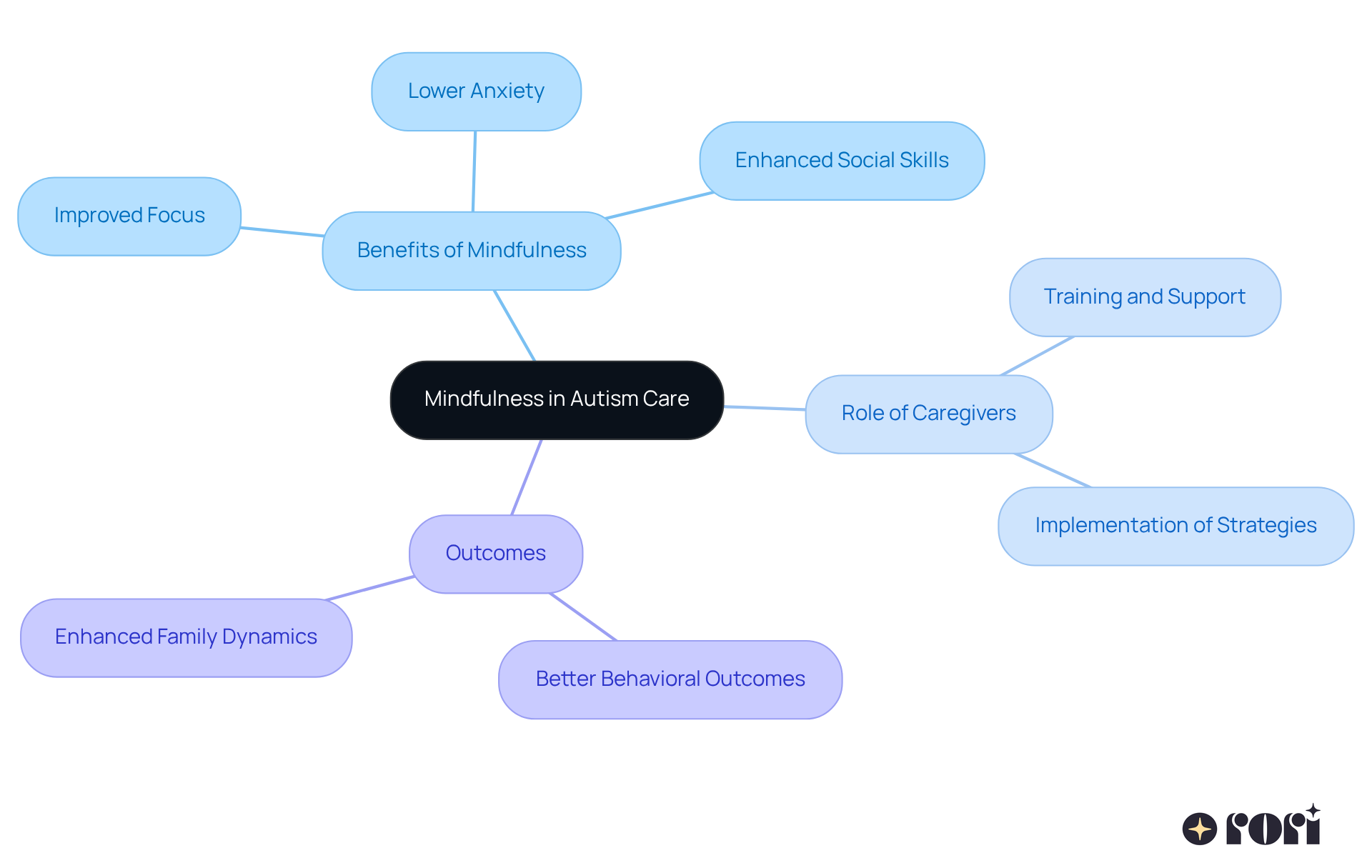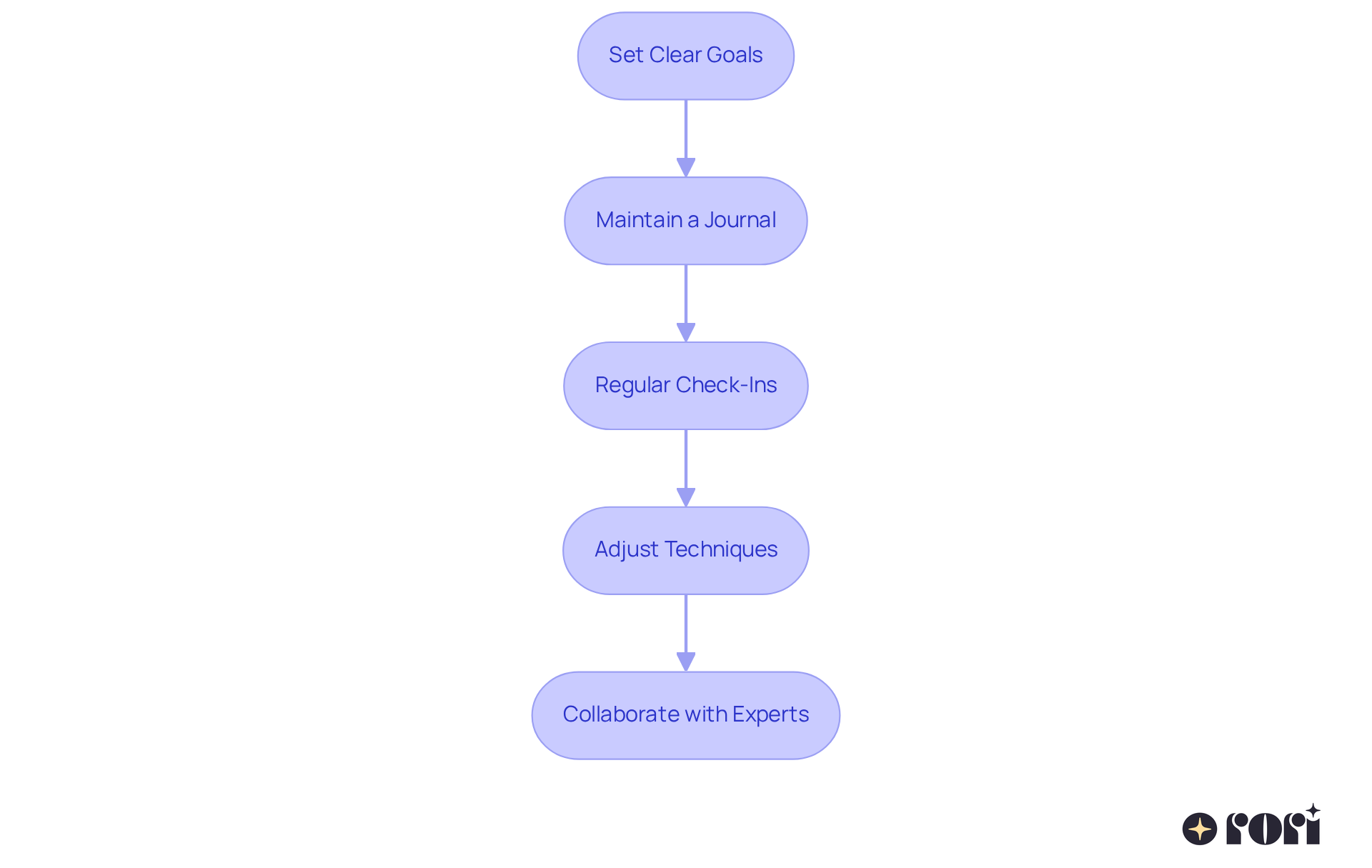Navigating the challenges of raising a child with autism spectrum disorder (ASD) can feel overwhelming, especially when communication and emotional regulation come into play. But here’s a thought: what if we could tap into something as simple as mindfulness to help our kids thrive? 🌟
Mindfulness isn’t just a buzzword; it’s a powerful tool that can enhance social skills and emotional awareness in our little ones. Imagine your child learning to self-regulate their emotions and develop empathy through just being present in the moment. It’s a beautiful journey that can lead to improved interactions and resilience.
So, what if the key to bridging the gap in social connections lies within this simple practice? Let’s explore this together! We’re here to help you every step of the way!
Autism spectrum disorder (ASD) can bring about some unique challenges when it comes to interaction, communication, and managing feelings. But here’s the good news: mindfulness - being present and fully engaged in the moment - can really help kids with autism. It boosts self-awareness and helps them regulate their emotions better. Research shows that mindfulness techniques can improve focus, lower anxiety, and play a role in enhancing social skills in autism care with mindfulness. For instance, families practicing mindfulness have reported less stress and greater resilience, which can be a game-changer for children with ASD. By understanding the neurodevelopmental aspects of autism alongside mindfulness principles, caregivers can create a nurturing environment that encourages emotional growth and community involvement.
At Rori Care, we truly believe that educating caregivers is key to effective autism care. When parents are trained and supported, they gain the tools to implement mindfulness strategies at home, working hand-in-hand with professional interventions like group and individual therapy. This informed approach leads to better behavioral outcomes, as active caregiver involvement aligns perfectly with therapeutic strategies, thereby enhancing social skills in autism care with mindfulness and paving the way for lasting improvements. Empowered caregivers not only ease their own stress but also enhance family dynamics, creating a loving atmosphere for their children’s development. Understanding how to apply mindfulness techniques effectively in autism care is essential, and it can lead to wonderful outcomes for our youth. Let’s explore this together!

Mindfulness techniques can play a crucial role in enhancing social skills in autism care with mindfulness, helping kids with autism become more emotionally aware and empathetic. Simple practices like mindful breathing and body awareness play a significant role in enhancing social skills in autism care with mindfulness, as they equip young people with the tools to recognize and manage their feelings, which is vital for making friends. Research shows that enhancing social skills in autism care with mindfulness can lead to greater empathy, allowing kids to better understand social cues and respond appropriately in different situations.
A systematic review and meta-analysis found that mindfulness-based interventions (MBIs) have a moderate effect on improving responsiveness in children with autism spectrum disorder (SMD = -0.35). This really highlights how effective these practices can be! Plus, enhancing social skills in autism care with mindfulness aids in emotional regulation, which is key for navigating the complexities of social interactions.
By weaving mindfulness into daily routines, caregivers can enhance social skills in autism care with mindfulness, equipping kids with the essential skills they need for effective communication and improving their overall quality of life. At Rori Care, our clinical leadership team is passionate about neurodiversity and youth success. We empower caregivers with ABA principles and strategies to support developmental goals through active involvement and data collection.
Additionally, social skills group therapy, led by trained therapists, plays a significant role in enhancing social skills in autism care with mindfulness, thereby improving social interactions and communication within a group setting. This fosters improved competence and relationships among peers. As Jon Kabat-Zinn beautifully puts it, "The little things? The little moments? They aren’t little." This really emphasizes the importance of being present and engaged in each moment, which can make a world of difference for individuals with autism.
Let’s explore this together! We’re here to help you every step of the way!

Parents, let’s explore some practical mindfulness techniques that can really support your child's development! Here are a few strategies that can make a difference:
Mindful Breathing: Encourage your little one to take deep breaths, focusing on how the air feels as it enters and leaves their body. Research shows that slow, deep breaths can help calm young minds during stressful moments. In fact, a study with 342 kids found that those who practiced deep breathing saw a significant drop in their stress levels.
Body Scans: Try guiding your child through a body scan exercise. This is where they focus on different parts of their body, promoting relaxation and improving body awareness. Dr. Kylee Miller points out that these exercises can help kids manage their emotions better.
Mindful Walks: Take a stroll together and encourage your child to notice the sights, sounds, and smells around them. This practice boosts sensory awareness and helps them connect more deeply with their environment. Incorporating mindfulness into your daily activities can make these moments truly enriching.
Gratitude Journals: Help your child keep a gratitude journal where they can jot down or draw things they’re thankful for. This simple activity nurtures positive thinking and emotional regulation, creating a sense of well-being. As Kate Lynch suggests, focusing on gratitude can really enhance family harmony and joy.
Mindfulness Games: Why not include some fun mindfulness games? For instance, play 'Simon Says' with a focus on slow, deliberate movements. This makes the activity engaging and encourages kids to be present in the moment. You might also consider using resources like animated videos that teach deep breathing techniques, which can be a great tool for parents.
By consistently practicing these techniques, you can create a nurturing environment that supports your child's emotional and social growth, ultimately enhancing social skills in autism care with mindfulness. Just remember, it’s normal to face challenges like staying consistent or managing expectations. Acknowledging these hurdles can help you navigate this journey more effectively. We’re here to help you every step of the way!

To really make the most of mindfulness practices in autism therapy, it’s super important to regularly check in and tweak the strategies you’re using. Here are some key steps to help you monitor progress effectively:
Set Clear Goals: Start by establishing specific objectives for social skills or self-regulation. Think about things like improving eye contact or managing anxiety during social interactions. Research shows that having clear goals can really boost results for individuals with autism.
Maintain a Journal: Keep a journal to jot down your child’s experiences with mindfulness techniques. Note any behavioral or emotional changes you observe. This reflective practice can help you spot patterns and gain insights that will guide your future strategies.
Regular Check-Ins: Make it a habit to have frequent chats with your child about how they feel regarding mindfulness techniques and any challenges they might be facing. Open dialogue creates a supportive environment and encourages them to express themselves.
Adjust Techniques: Stay flexible! Be ready to modify techniques based on your child’s feedback and what you observe. If something isn’t resonating, explore other mindfulness techniques that might engage your little one better. Flexibility is key for keeping them involved and successful.
Collaborate with Experts: Don’t hesitate to team up with therapists or clinicians to assess your child’s progress and refine mindfulness strategies as needed. Professional insights can really enhance the effectiveness of interventions and ensure they align with therapeutic goals.
By actively monitoring and adapting mindfulness practices, you can effectively support enhancing social skills in autism care with mindfulness, contributing to your child’s social skills development and emotional well-being. Together, let’s pave the way for meaningful progress in their therapeutic journey!

Mindfulness strategies offer a wonderful way to boost social skills in children with autism spectrum disorder (ASD). By nurturing self-awareness and emotional regulation, these techniques create a warm environment that empowers both kids and their caregivers. Integrating mindfulness into autism care not only eases stress for families but also helps develop essential social skills, leading to better interactions and emotional growth.
This article shines a light on the many benefits of mindfulness, featuring practical techniques like:
Each of these strategies acts as a helpful tool for children to better grasp their emotions and improve their social responsiveness. Plus, the role of caregivers is crucial here; informed parents can effectively implement these practices, paving the way for meaningful progress and stronger family bonds.
Ultimately, embracing mindfulness in autism care isn’t just about enhancing social skills; it’s about fostering a holistic sense of well-being for children and their families. By actively engaging in these practices and regularly checking in on their impact, caregivers can create a nurturing environment that supports their children’s emotional and social development. Sure, the journey might have its bumps, but the rewards of mindfulness in autism care are truly profound, encouraging a brighter future for every child on the spectrum. Let’s explore this together!
What is autism spectrum disorder (ASD)?
Autism spectrum disorder (ASD) is a neurodevelopmental condition that can present unique challenges in interaction, communication, and managing emotions.
How can mindfulness help children with autism?
Mindfulness can help children with autism by boosting self-awareness, improving emotional regulation, enhancing focus, lowering anxiety, and improving social skills.
What benefits have families reported from practicing mindfulness?
Families practicing mindfulness have reported less stress and greater resilience, which can significantly benefit children with ASD.
Why is caregiver education important in autism care?
Educating caregivers is key to effective autism care because it equips them with tools to implement mindfulness strategies at home, which complements professional interventions.
How does caregiver involvement impact behavioral outcomes in autism care?
Active caregiver involvement aligns with therapeutic strategies, leading to better behavioral outcomes and enhanced social skills for children with autism.
What role does mindfulness play in creating a nurturing environment for children with autism?
Mindfulness principles help caregivers create a supportive atmosphere that encourages emotional growth and community involvement for children with autism.
What are some mindfulness techniques that can be applied in autism care?
The article does not specify particular techniques, but it emphasizes the importance of understanding how to apply mindfulness effectively in autism care for positive outcomes.